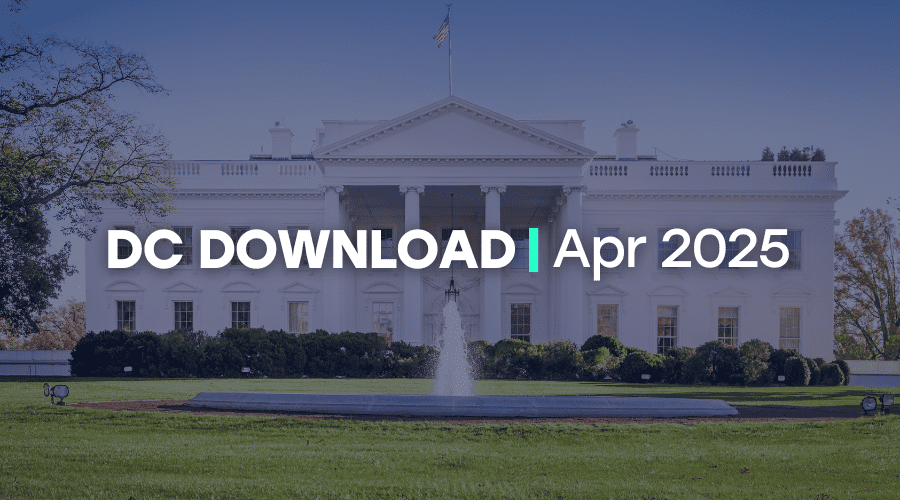With so much to do, no one is anxious to spend much time looking back to 2017. The picture in the rear-view mirror isn’t all that pretty for the sector in light of what happened with the Tax Cuts and Jobs Act bill. (In case you missed it, here’s the summary of what tax reform proposals mean for us.)
But, in taking a bit of time to understand where we landed last year, we can draw some important lessons to help nonprofits be more effective advocates in 2018. Over the last two months, IS convened a series of “public learning” conversations for just this purpose. Here are some lessons learned:
- We Had Some Important Wins
The most notable successes of nonprofit advocacy lie in proposals that were not included in the final tax bill. The charitable community, including thousands of you who took action through our Action Center, or with boots on the ground in Congressional districts or in Washington, beat back an attempt to repeal the Johnson Amendment – the critical barrier between partisan politics and our sector. We also fended off proposals to critical tax funding streams, like private activity bonds, sponsorships, and royalties.Together, we made sure policymakers heard our collective opposition to policy proposals that undermine our ability to advance our missions. We also learned that it takes a lot of explaining before people are willing to contact their Members of Congress and the messenger matters. Providing updates from Washington, DC has its place. But local nonprofit leaders sharing information with one another was the most effective way to drive action. In the future, we need to foster more local, peer-to-peer education about potential policy issues impacting our sector. - Research Is Important, but Not Everything
In 2017, we had good research on what a tax bill could mean for charitable giving. But in the end, while that research was helpful in getting our sector aligned around a cause – the universal charitable deduction – it didn’t move votes in Congress. Without real stories of what is happening on the ground – told in ways that connect with Members of Congress – even the best data will fail us.As we move into 2018, we are building a more agile, solutions-focused research capacity for our sector. At the same time, we need to tell a story of impact – through local voices – that will “move the needle” with a legislator. Ultimately, the most important voices are local nonprofits that can paint the picture of how policy proposals will change their work. - We Need to Make the Right Friends in Congress
The charitable community did not have the right friends in Congress to get the universal charitable deduction into the final tax bill. The tax bill moved from proposal to law at lightning speed. The sector is also seen as having less political clout compared to other industries that fared better in the tax bill. And frankly, advocates didn’t do a good enough job of convincing nonprofit leaders and policymakers that we were facing a potential crisis.The “window will open again” to advocate for policies that increase charitable giving and mitigate any negative effect of the new tax law. We must be ready to act. To prepare, we must cultivate Members of Congress from key committees to champion the sector and policy proposals that will increase civil society’s capacity to tackle community problems and meet critical needs. This process begins by you reaching out to establish a relationship with your Members of Congress and educate them about the critical value your organization provides to your community.
Our Work Continues
Like many of you, IS will be assessing what the Tax Cuts and Jobs Act means for nonprofit operations, charitable giving, and the communities we all serve. What we know for sure is that our policy agenda will focus on the cross-sector issues you have counted on us to lead: improving tax policy that governs our work, increasing charitable giving, strengthening nonprofit advocacy, protecting charities from partisan politics, and preserving the public’s trust in the nonprofit sector.
We know we cannot advance this agenda without engaging you every step of the way, whether you are a nonprofit employee with very little public policy experience or the vice president of government affairs at one of our nation’s biggest institutions. Here are some ways you can get involved:
- Stay Informed
Get up-to-date information on policy changes that may impact your work by reading the IS Blog and monthly Voices for Good Newsletter, listening to the biweekly Voices for Good podcast, and registering for our Monthly Policy Update calls. Also, please feel free to email the IS policy team if you need any information. - Tell a Colleague
Tell a colleague, donor, or volunteer about the policy changes you hear about from IS and through other networks. You are the best messenger to ensure that nonprofits are paying attention to the issues that fundamentally alter how we do our work. Discuss what kind of impact you think new policies may have on your organization, mission, and the communities you serve. Don’t forget to tell IS what you think the impact will be, as well. - Contact Your Member of Congress Today
The best way to cultivate new Members of Congress to fight for our sector is to strengthen our day-to-day relationships with them. Educate them about how the nonprofit sector adds economic and social value in your community. Tell stories of how your organization changes lives and what resources or policies you need to increase your impact.
Let’s get to work!



